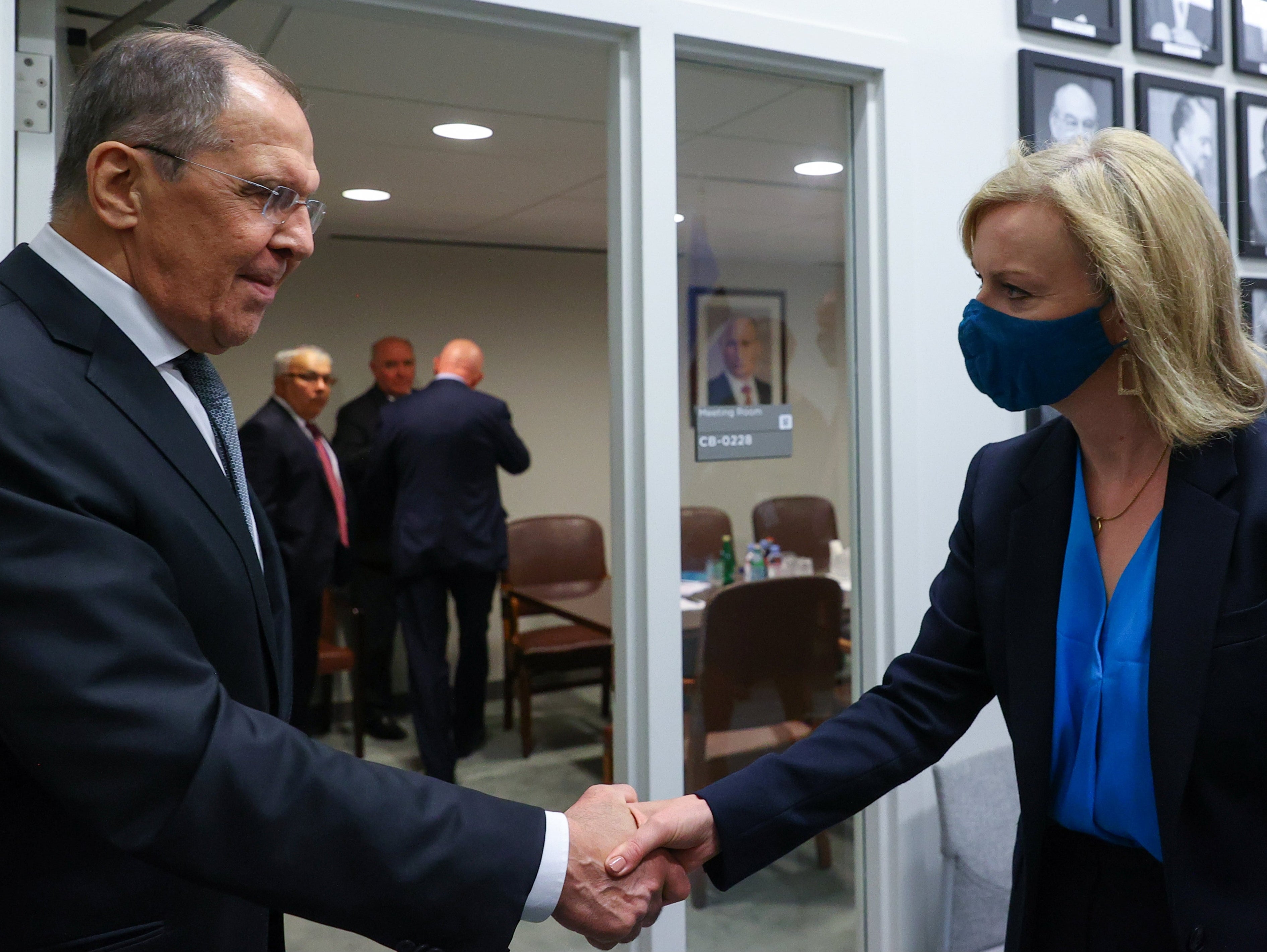Salisbury attack: Foreign secretary silent on poisoning of Sergei Skripal at meeting with Russian counterpart
Priti Patel told parliament Liz Truss would use UN General Assembly to have ‘key discussions’ after third suspect charged

The government has remained silent on whether the new foreign secretary challenged her Russian counterpart over the Salisbury attack during a meeting held after a third suspect was charged.
Liz Truss met the Russian foreign minister, Sergey Lavrov, on the sidelines of the UN General Assembly in New York on Wednesday - a day after police announced the prosecution of GRU agent Denis Sergeev.
A summary of their discussion provided by the government made no mention of the poisoning of Sergei Skripal, which Theresa May said was approved “at a senior level of the Russian state” in 2018.
The readout said: “The foreign secretary met Russian foreign minister Sergey Lavrov ahead of the meeting of P5 foreign ministers convened by the UK.
“They discussed the need for Iran to return to nuclear talks. They also discussed stability and security in Afghanistan including the need for the Taliban to form an inclusive government. They looked forward to the COP26 conference in Glasgow in November.”
Boris Johnson had urged Russia publicly to “hand over” the three suspects identified by British police, so they can go on trial in the UK.
The meeting came a week after Ms Truss replaced Dominic Raab as foreign secretary in a cabinet reshuffle.
Russia’s Ministry of Foreign Affairs released its own summary of the meeting, which also made no mention of the Salisbury attack.
It said the ministers discussed “the current state of bilateral relations”, and suggested that Mr Lavrov accused the British government of refusing to treat Russia with “equality and regard for each other’s interests”.
Russia has denied responsibility for the Salisbury attack and refuses to extradite its nationals, meaning the likelihood of the three suspects facing a British court is slim.
On Tuesday, MPs asked the home secretary what stance the foreign secretary would take with her Russian counterpart “so that these suspects are forced to face justice”.
Priti Patel told parliament that Ms Truss and the Foreign Office were “undertaking a range of diplomatic engagements in UN forums right now”.

“The foreign secretary is currently in New York at the UN General Assembly, and we are in no doubt that we are pressing every single lever,” she added. “The FCDO and the foreign secretary will rightly lead on the key discussions.”
Ms Patel pledged that the government would “take every possible step” to detain the suspects and added: “Our government will be relentless in our pursuit of justice for the victims of these attacks.”
Dean Haydon, the Senior National Coordinator for Counter Terrorism Policing, previously said that police were relying on the Foreign Office and diplomatic channels for any hope of moving the case forward.
“There is no extradition treaty with Russia,” he told a press conference. “We had very little cooperation from Russia or the Russian state. The FCDO will be talking on diplomatic channels to Russia but from the police investigation side our due process is to seek arrest warrants and circulate them through Interpol.
“If there is an opportunity to arrest those individuals and put them in front of a UK court to seek justice for those individuals [poisoned] or the people of Salisbury, we will do that.”
Interpol red notices have been circulated internationally for the past three years for the two suspects previously charged over the attack, GRU agents Alexander Mishkin and Anatoliy Chepiga, but no arrests have been made.
The new suspect, Denis Sergeev is also thought to remain in Russia.
The Crown Prosecution Service has authorised the same charges against him as the two previous suspects, including the attempted murder of Mr Skripal and his daughter Yulia, the grievous bodily harm of police officer Nick Bailey and the use of novichok as a chemical weapon.
They do not cover the death of Dawn Sturgess, a 44-year-old-mother killed by novichok, because the investigation into how she came by the discarded chemical weapon in June 2018 is ongoing.
Sergeev, who travelled to the UK under the alias Sergey Fedotov, is believed to have commanded the poisoning operation from London.
He arrived in Britain hours before his alleged accomplices on 2 March 2018, and met them “on more than one occasion” before the attack.
Sergeev flew back to Moscow from Heathrow at 1.45pm on 4 March, under two hours after the nerve agent was applied to Mr Skripal’s front door.
Mr Haydon said the three suspects “operated as a team” to target Mr Skripal and had previously worked with each other “on behalf of the Russian state on operations outside of Russia”.
No new sanctions or diplomatic action against the Kremlin have been announced after the new charges against Sergeev, which were revealed hours after the European Court of Human Rights ruled that Russia was responsible for the fatal poisoning of Alexander Litvinenko in 2006.
Join our commenting forum
Join thought-provoking conversations, follow other Independent readers and see their replies
Comments



Bookmark popover
Removed from bookmarks